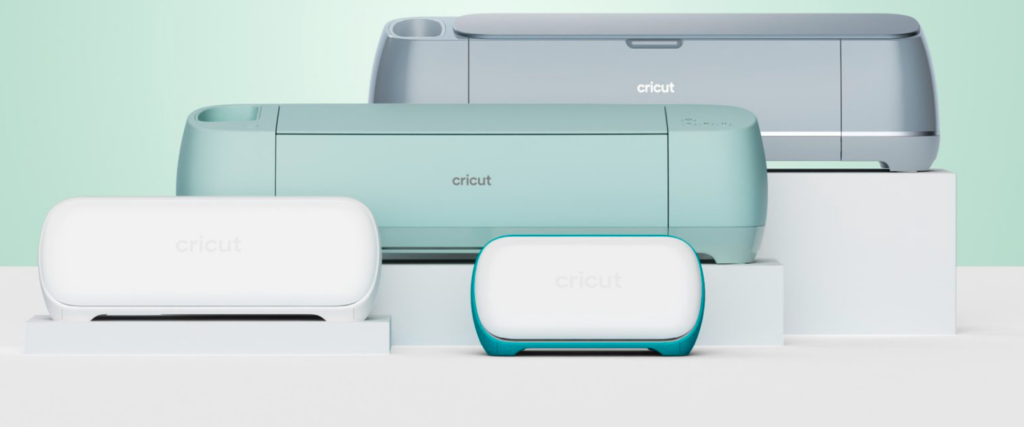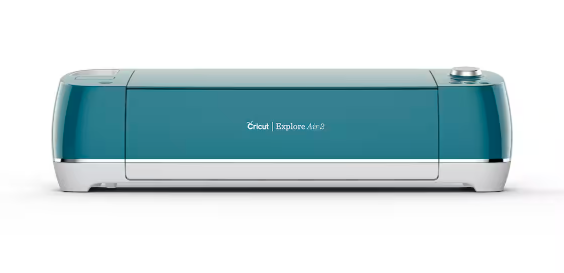Looking to buy your first Cricut machine and wondering which machine to get? Starting your Cricut journey can feel like diving into a world of endless creative possibilities—and endless options. With so many machines, tools, and materials to choose from, it’s natural to feel a bit overwhelmed. If you’re wondering, What’s the best Cricut machine for me?, don’t worry—I’ve got you covered!
Let’s break it all down. Here’s what beginners like you are looking for in a Cricut machine: compatibility with your needs, ease of use, value for money, versatility, and the right tools and accessories. Plus, I’ll review the top Cricut machines to help you decide which one fits your crafting goals.
What to Look for in a Cricut Machine
Before diving into the reviews, let’s talk about the five key things you should consider when buying a Cricut machine:
1.Compatibility with Your Needs
The first step in finding the best Cricut machine is asking yourself: What do I want to make? Different machines shine for different types of projects.
- T-Shirts, Stickers, and Décor: If you’re all about making shirts, vinyl decals, or personalized gifts, the Cricut Explore Air 2 is a great choice. It handles basic materials like vinyl, iron-on, and cardstock with ease.
- Advanced Materials: Planning to work with leather, thin wood, or acrylic? The Cricut Maker or Maker 3 is your go-to since they can handle a wider range of materials.
- Quick and Simple Projects: For smaller crafts like cards, labels, and small decals, the Cricut Joy is perfect—it’s compact, portable, and easy to use.
Pro Tip: Think beyond your first project. Many buyers start small but quickly realize they want to branch out into other crafts. A versatile machine like the Explore 3 or Maker might save you an upgrade later on.
2. Ease of Use for Beginners
Let’s face it: Nobody wants to spend hours figuring out how to set up their machine or troubleshooting issues. If you’re a first-time user, you’ll want a Cricut that’s beginner-friendly with intuitive software and a straightforward setup.
- The Cricut Explore Air 2 is a crowd favorite for its simple interface and step-by-step guides.
- The Cricut Joy is even more beginner-friendly—it’s practically plug-and-play and doesn’t overwhelm you with too many features.
Not sure which tools to use or how to start? Cricut Design Space, the software that pairs with all Cricut machines, is designed for beginners. It’s not perfect, but it’ll get you from idea to creation with plenty of templates and guidance.
3. Cost and Value
Budget is often a big factor, and it’s not just about the price of the machine. You’ll also need to think about accessories, materials, and whether bundles are worth it. Here’s a quick breakdown:
- Cricut Explore Air 2 (Reg Price $199): Affordable and reliable for beginners.
- Cricut Joy (Reg Price $179): Slightly cheaper and great for simple projects.
- Cricut Explore 3 (Reg Price $319): Costs more but offers faster speeds and matless cutting.
- Cricut Maker (Reg Price $369): A higher upfront cost, but it handles everything from fabric to leather.
- Cricut Maker 3 (Reg Price $429): Only worth the price if you’ll use advanced materials like thick wood or acrylic.
Bundles can be tempting, but they’re not always the best value. Many crafters prefer to buy only the tools and materials they need rather than ending up with extras they’ll never use.
Pro Tip: Check out third-party brands like HTVRont for vinyl and Nicapa for mats—they’re often cheaper and work just as well.It’s not just about the price of the machine—accessories, tools, and materials add up. Consider whether the machine and bundles offer good value for money.
4. Versatility
One of the best things about Cricut machines is their ability to grow with your crafting interests. Whether you’re cutting paper, vinyl, or fabric today, you might want to try leather, wood, or acrylic down the road.
- Cricut Explore Air 2: Cuts over 100 materials, making it a solid choice for versatile crafting.
- Cricut Explore 3: Adds matless cutting with Smart Materials for bigger projects.
- Cricut Maker and Maker 3: Can cut over 300 materials, including fabric, leather, and thin wood.
If you’re not sure what you’ll want to make in the future, go for a machine that gives you room to experiment. The Cricut Explore 3 or Cricut Maker are versatile enough to handle a wide variety of projects as your skills and interests grow.
5. Tool and Accessory Recommendations
When you’re just starting out, it’s easy to get overwhelmed by all the tools and accessories available. Here’s what you actually need:
- Basic Toolset: Includes a weeding tool, scraper, and scissors. Cricut’s official tools are great, but third-party options work just as well.
- Cutting Mats: LightGrip and StandardGrip mats are essential. Non-Cricut brands like Nicapa are affordable and reliable.
- Vinyl and Transfer Tape: Cricut-branded vinyl is good but pricey. Brands like HTVRont and Oracal offer high-quality, budget-friendly alternatives.
- Optional Extras: If you’re using the Maker or Maker 3, consider additional blades for cutting fabric, scoring, or engraving.
Pro Tip: Skip the bundles unless you’re certain you’ll use everything in them. You can usually get better value by buying exactly what you need separately.ou don’t need every accessory right away. Knowing which tools are essential (and whether third-party options are worth it) will save you time and money.
Find Your Perfect Fit
Now that you know what to look for, here’s a breakdown of the top Cricut machines for beginners, with a focus on how they meet those key needs.
1. Cricut Explore Air 2: Reliable, Versatile, and Beginner-Friendly
Price Range: Around $199
The Explore Air 2 is a classic choice for beginners and one of the most popular Cricut machines ever. It’s reliable, easy to set up, and handles over 100 materials like vinyl, cardstock, and iron-on.
Why it’s great for beginners:
- It’s straightforward and user-friendly, perfect for your first foray into crafting.
- It’s versatile enough for a variety of projects, from personalized mugs to custom T-shirts.
- Budget-friendly without sacrificing quality, making it a fantastic value.
Best for: Beginners who want a reliable machine to tackle everyday crafts.
2. Cricut Joy: Small, Quiet, and Fun
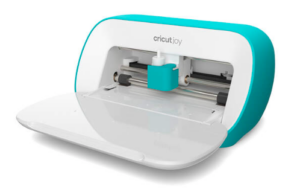
Price Range: Around $179
If space or simplicity is a concern, the Cricut Joy is a perfect match. This compact machine is designed for smaller, quick projects like labels, cards, and decals.
Why it’s a great option:
- It’s portable and easy to store, so you don’t need a dedicated crafting space.
- Matless cutting with Smart Materials makes crafting even easier.
- It’s quiet and hassle-free—ideal for beginners who don’t want to feel overwhelmed.
Best for: Crafters who want a compact, beginner-friendly machine for quick projects.
3. Cricut Explore 3: Speedy and Flexible
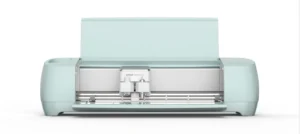
Price Range: Around $319
The Explore 3 is the next step up from the Explore Air 2. It’s faster, works with Cricut’s Smart Materials for matless cutting, and handles larger projects like banners or wall decals.
Why it stands out:
- The faster cutting speed means less waiting and more creating.
- It’s flexible enough to grow with you as your crafting interests expand.
- Great for bigger projects and those who want to try out Cricut’s newer features.
Best for: Beginners who plan to tackle larger projects or grow into more advanced crafts.
4. Cricut Maker: The Do-It-All Machine
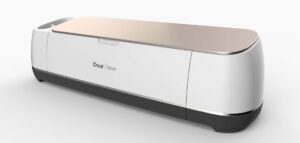
Price Range: Around $369
The Cricut Maker is the ultimate all-rounder, capable of cutting over 300 materials, including fabric, leather, and thin wood. It’s perfect for beginners who want a machine that can handle just about anything.
Why people love it:
- It’s incredibly versatile—perfect for experimenting with different crafts.
- The interchangeable tools let you cut, score, engrave, and more.
- Durable and built to last, making it a great long-term investment.
Best for: Beginners who want endless possibilities and room to grow.
5. Cricut Maker 3: The Ultimate Powerhouse
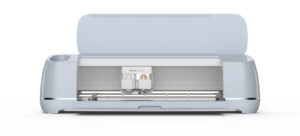
Price Range: Around $429
The Maker 3 is the most advanced Cricut machine, offering faster speeds and compatibility with heavier materials like thick wood and acrylic. That said, it’s pricey and probably more than most beginners need—unless you already know you’ll be using those advanced features.
Why it’s worth it:
- It’s perfect for big, complex projects that require cutting heavy-duty materials.
- Faster speeds and matless cutting save time on bulk crafting.
- Built for serious crafters, but probably overkill for simple vinyl or paper projects.
Best for: Beginners planning to work with advanced materials or large-scale projects.
What Else Do You Need to Get Started?
Once you’ve picked your Cricut, you’ll need a few essentials to start crafting:
- Basic Tools: A weeding tool, scraper, and scissors are must-haves. Cricut-branded tools are great, but budget-friendly options on Amazon work just as well.
- Mats: LightGrip and StandardGrip mats are versatile for most projects. Look for affordable alternatives like Nicapa.
- Vinyl and Transfer Tape: Cricut vinyl is good but pricey. Try HTVRont or Oracal for quality at a lower cost.
- Materials: Start with what you plan to make—iron-on vinyl for shirts, permanent vinyl for mugs, or cardstock for paper crafts.
Pro Tip: Bundles can be tempting but aren’t always the best value. Many crafters prefer buying only what they need to avoid clutter or waste.
Final Thoughts: What’s the Best Cricut Machine for You?
Choosing your first Cricut machine doesn’t have to be overwhelming. Think about your projects, budget, and future crafting goals:
- Best for Simplicity: Cricut Joy
- Best for Small, Quick Projects: Cricut Joy
- Best Budget-Friendly Option: Cricut Explore Air 2
- Best Value for Beginners: Cricut Explore Air 2
- Best for Versatility: Cricut Explore 3
- Best for Endless Possibilities: Cricut Maker
- Best for Advanced Features: Cricut Maker 3
No matter which Cricut you choose, remember that crafting is all about having fun and exploring your creativity. Pick a machine that fits your needs, grab a few tools and materials, and start creating!

